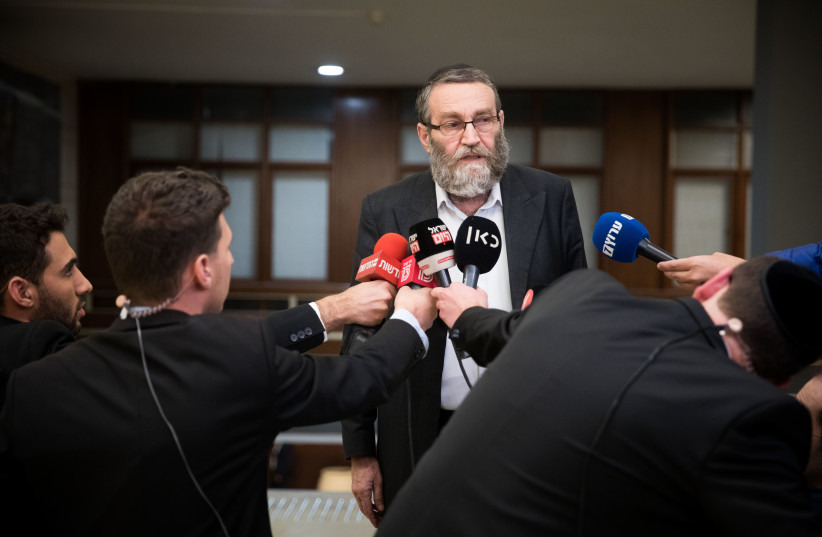Closed-door negotiations between representatives of Israel's ultra-Orthodox (haredi) parties are expected to intensify this week after a lull due to last week's municipal elections, according to a source from one of the haredi parties.
According to the source, in the weeks leading up to the election, meetings were held between representatives of Shas, including Shas party chairman MK Aryeh Deri and former Shas MK Ariel Atias; the Lithuanian-haredi Degel Hatorah party chairman MK Moshe Gafni; lawyer Yitzhak Meron on behalf of Gur, Israel's largest Hasidic group; government secretary Yossi Fuchs; and Minister-without-portfolio MK Chili Tropper on behalf of National Unity chairman MK Benny Gantz.
However, the haredi parties' involvement in the municipal election slowed the negotiation process. The conclusion of the election, coupled with Defense Minister Yoav Gallant's statement on Wednesday night that he would only move forwards with a new conscription bill if it were approved by Gantz, gave the latter veto power, and the talks will now recommence between Gantz's party and the haredi parties.
Gantz and fellow war cabinet minister MK Gadi Eisenkot presented on February 26 a plan for haredi conscription, whereby the defense establishment will be able to pick whoever it wants for military service, and all others will serve for at least one year in national civil service.
While the haredi politicians understand that the current war necessities mean that they will have to make unprecedented concessions, they will insist that any haredi man who wishes to study in a religious academy (yeshiva) and not serve will be given the right to do so, the source said.

He added that haredi politicians were now aiming for a law similar to a proposal they worked out in 2022 with then-defense minister Gantz, and which passed its first reading in the Knesset, which set a gradually increasing yearly quota for haredi service in the IDF, but did not require that every haredi man commit some sort of national service.
Debate over haredi exemption from the IDF
The public debate over the haredi exemption from IDF service broke out after the government last month announced its plan to extend mandatory and reserve duties for current soldiers in order to fill the ranks left vacant by the many soldiers killed and injured in action, as well as to meet Israel's heightened security needs.
The government did not propose to meet these needs by recruiting soldiers from a broader pool of candidates, such as haredim, in order to lessen the burden on those who already are serving.
The public debate also coincided with a court case against the haredi exemption that is currently underway in Israel's Supreme Court. The previous law that enabled haredi exemption officially expired at the end of June 2023, and the government decided that it would pass a new law by the end of March 2024.
However, with that date nearing, the government does not seem close to solving the issue. Government funding for yeshiva students also stems from the law that expired, and thus if no solution is found by the end of March, haredi men may no longer be legally entitled for an exemption, and yeshivot may lose their funding.
